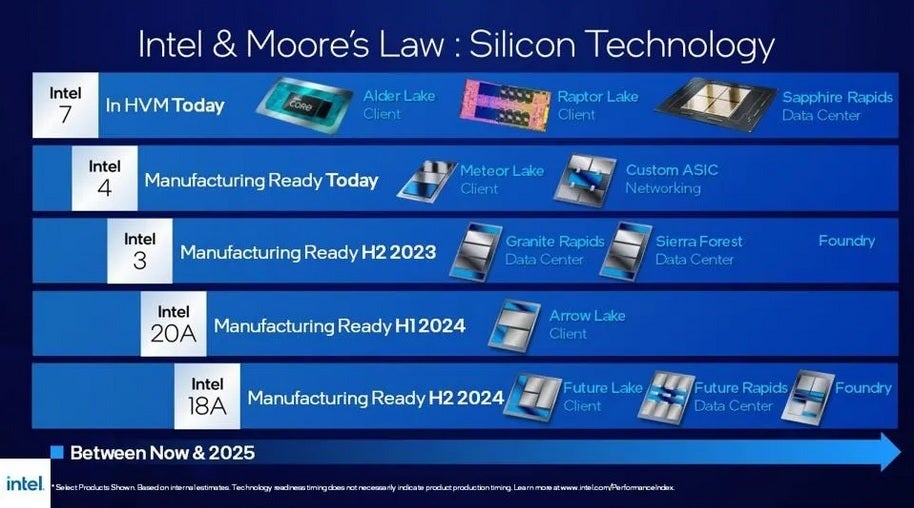Intel gets confidence boost from anonymous customer pre-paying for 18A (1.8nm) production

Last week, Intel CEO Pat Gelsinger reiterated his goal for Intel to take foundry leadership from TSMC by 2025. The executive said, "We’re 2.5 years into the transformation. Now, it’s sort of gone the way I would have expected at the time in terms of rebuilding the company. You have to be much less skeptical about our ability to pull this off." Intel not only had to watch as TSMC took its foundry leadership away, but it also saw TSMC's largest customer, Apple, replace its Intel chips with M-series chips built by TSMC.
During last week's Deutsche Bank conference, Gelsinger spoke and stated that the 18A node will return process leadership to Intel. That node would be considered 1.8nm while TSMC and Samsung would be shipping at 2nm during the same time. The CEO also let it be known that Intel has received a large prepayment from a customer for Intel's 18A capacity. This gives Intel the confidence to believe it is on the right track and will lead the company to speed up the build-out of 18A fabs.
In the long term, Intel sees the contract foundry business as its biggest opportunity. One interesting comment made by Gelsinger is that Intel knows TSMC's wafer costs, ASPs, and targets. With this knowledge, he says that Intel wants to have lower costs than TSMC so that it can win business from the global foundry leader. He says that Intel is trying to get its internal cost structure in line with TSMC. To this end, Intel will study its metrics such as headcount per wafer start, and use more AI/Machine Learning to improve efficiency.

Intel's timeline for taking over process leadership from TSMC and Samsung Foundry
Intel is still relying on TSMC to build parts of its next-generation 'Meteor Lake' chips. While Intel will use its Intel 4 node (7nm) to build the chip's CPU tile, the GPU tile will use TSMC's 5nm node. The chip's SoC tile, an ultra-low-power tile that supports media, imaging, display, and the connection to memory, will be built on TSMC's 6nm node as will the chip's I/O Extender tile.
As Tech journalist Leo Waldock notes in a post on X, "All that could be correct yet it still seems weird to me that Intel is buying tiles from TSMC for its own products while touting foundry services to 3rd parties. Eat your own dog food, no?"
Will Intel make TSMC and Samsung Foundry squirm? Will Apple stay loyal to TSMC? Will geopolitical rumblings make TSMC customers worried enough to bring their business to another foundry? These are questions that we will have to wait to answer.
Follow us on Google News











Things that are NOT allowed:
To help keep our community safe and free from spam, we apply temporary limits to newly created accounts: